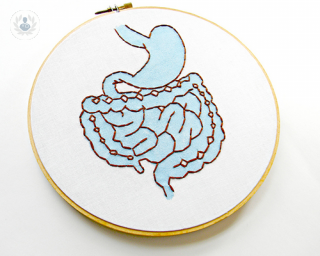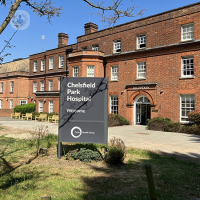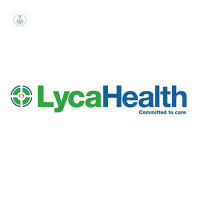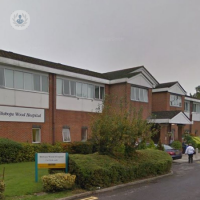Bowel surgery
What is a colectomy (bowel surgery)?
Colectomy is a surgical procedure that involves the removal of all, or the partial sectioning, of the large intestine (colon). The colon is a long tube-shaped organ at the end of the digestive tract. A colectomy may be required to treat or prevent diseases and conditions that affect the colon.
Bowel surgery will be carried out by a specialist surgeon.
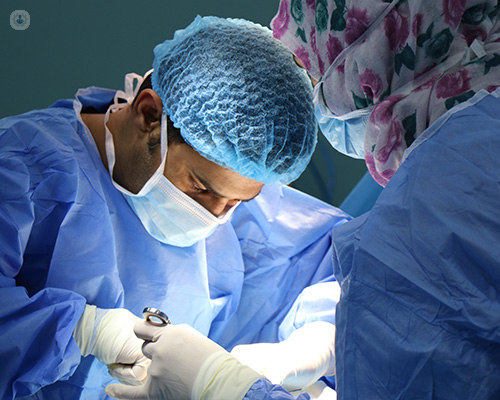
Diseases and conditions treated with a total or partial colectomy
The following conditions may require a colectomy:
- Bowel obstruction – when the colon is blocked.
- Bowel perforation – a torn colon, or where bleeding cannot be controlled.
- Crohn’s disease – removing the affected part of the colon.
- Colon cancer – early-stage cancers may need a small section of the colon to be removed, whilst cancers at a later stage may require more to be removed.
- Lynch Syndrome - an inherited disorder that increases the risk of a number of types of cancer, particularly colon cancer.
- Precancerous colon polyps – those with a high-risk of developing cancer.
- Ulcerative colitis – a colectomy is required if medications are not working.
Different types of colectomy procedures
A total colectomy removes the entire large intestine. A partial colectomy, also known as a subtotal colectomy, removes only part of the colon. A hemicolectomy removes either the right or the left portion of the colon and a proctolectomy removes both the colon and the rectum.
Open vs. laparoscopic procedure for colectomy
During an open colectomy, a long incision is made in the wall of the abdomen enabling the doctors to see the colon. In a laparoscopic-assisted colectomy, a lighted tube with a video camera is inserted through one of several small incisions to guide the surgery.
Risks of colectomy (bowel surgery)
The procedure carries a risk of serious complications, which depend on the patients' general health and the type of colectomy performed. These complications can include:
- bleeding
- deep vein thrombosis (blood clots in the leg)
- infection
- injury to organs near your colon, such as the bladder and small intestines
- pulmonary embolism (blood clots in the lungs)
- tears in the sutures that reconnect the digestive system.
How to prepare for colectomy (bowel surgery)
In the days leading up to the colectomy, the doctor will suggest that the patient stops taking certain medications. Fasting before surgery is also required and drinking a solution such as a laxative that clears your bowels. In some cases, a doctor may prescribe antibiotics to prevent any infection from occurring.



